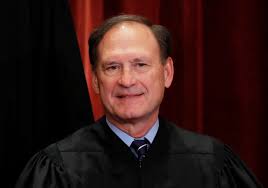Supreme Court Justice Samuel Alito recently addressed concerns regarding his involvement in cases related to the 2020 presidential election and the January 6, 2021, US Capitol riot. In a letter to lawmakers, Alito stated that he will not recuse himself from these cases despite controversy surrounding flags flown on his properties.
Alito’s Response
Explanation of Decision
In the letter distributed by the Supreme Court, Alito explained that the incidents in question do not meet the criteria for recusal. He emphasized that he had no involvement in the flying of the controversial flags and was unaware of the situation until it was brought to his attention.
Unusual Response
Alito’s decision to address the issue directly highlights the gravity of the situation. It is rare for Supreme Court justices to engage in such exchanges with lawmakers, underscoring the significance of the controversy surrounding the flags.
Background on the Flags
Controversial Flags
The controversy arose when it was revealed that two controversial flags had been flown on properties associated with Alito. The presence of these flags raised questions about Alito’s impartiality and potential conflicts of interest in cases related to the presidential election and Capitol riot.
Impact on Alito
The revelations about the flags have followed Alito for several days, casting a shadow over his reputation and prompting scrutiny from both lawmakers and the public.
Judicial Impartiality
Importance of Impartiality
Judicial impartiality is a cornerstone of the legal system, ensuring fair and unbiased decision-making. Justices are expected to uphold the principles of justice and impartiality in all their actions and decisions.
Allegations of Bias
The allegations of bias against Alito highlight the challenges faced by judges in maintaining impartiality, particularly in high-profile and politically charged cases.
Role of Recusal
Purpose of Recusal
Recusal is a mechanism designed to address concerns about judicial impartiality. Judges may recuse themselves from cases in which they have a personal or financial interest, or if their impartiality may reasonably be questioned.
Alito’s Decision
Alito’s decision not to recuse himself from the cases in question suggests that he believes he can adjudicate them fairly and impartially, despite the controversy surrounding the flags.
Justice Samuel Alito’s decision not to recuse himself from cases involving the 2020 presidential election and the US Capitol riot, despite concerns about flags flown on his properties, underscores the importance of judicial impartiality. While the controversy surrounding the flags has raised questions about Alito’s impartiality, his decision to address the issue directly demonstrates his commitment to upholding the principles of justice and fairness.




